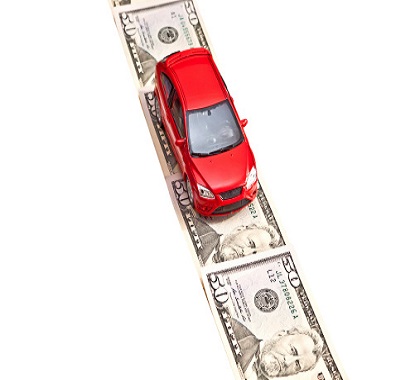Problem
Gasoline taxes are an unreliable funding source for state transportation projects, road construction, and maintenance due to declining gasoline prices and more fuel-efficient vehicles. In 2015, Daniel Vock, writing for Governing, analyzed state gas tax data reported to the U.S. Census Bureau and found two-thirds of state fuel taxes failed to keep up with inflation.
In an effort to counteract the decreasing funds from the gas tax, several states are considering a new transportation funding plan that would create a vehicle mileage tax (VMT) for electric vehicles. A VMT is based on road use measured in mileage using an in-car device that captures the distance driven by a vehicle through GPS.
Policy Brief
VMTs present several problems that could make implementation difficult. The biggest issue is concern over privacy. VMTs could allow the government to track drivers. Although this concern can be mitigated by limiting what is transmitted by the device and data storage rules requiring deletion of personal data, it is still a major paradigm shift in tax collection that may be unacceptable to the public.
Moreover, installing the devices in cars and periodically collecting the data would be a costly endeavor that may offset some of the gains from the tax. There are also concerns the VMT could move consumer choice away from energy efficient vehicles as they are no longer penalized for driving vehicles with poor gas mileage.
In 2017, the Washington Policy Center (WPC) released a study that examined VMTs to determine if they are a capable replacement of the gas tax and whether predictions of a future revenue problem are well-founded. The report found several problems with the VMT. WPC found that whenever a mileage tax rate increases automatically every year with inflation, which is common with most VMT proposals, drivers end up paying more on a per mile basis than with gas taxes.
Policy Solutions
Profligate spending is an issue that has long plagued transportation funding. Bloat, inflated labor costs, and unneeded bureaucracy often increase the budgets of new infrastructure projects far above initial estimates.
One very simple reform lawmakers ought to consider is limiting the use of gas tax dollars to fund transportation projects. Other reforms state lawmakers should consider include creating a transportation funding “lockbox,” which reserves gas tax dollars for transportation projects, or a requirement that a portion of surplus funds be dedicated to road projects.
As more fuel-efficient vehicles enter the market, gasoline tax revenues will continue to decline. Consequently, state lawmakers will need to consider more modern and effective ways to fund road construction and traffic infrastructure, which should include privatizing roads and establishing toll systems.
Another method to reduce outrageous transportation costs is to eliminate project labor agreements (PLA) and prevailing wage laws. PLAs unfairly benefit organized labor and increase project costs borne by taxpayers. Studies by the Beacon Hill Institute and New Jersey Department of Labor found PLAs increase a project’s base construction bid and building costs.
Prevailing wage laws are a form of centralized planning and wage control that increases government-contracted construction costs, reduces competition, and politicizes public projects.
Policy Message
Point 1: A 2016 study by the Mineta Transportation Institute found only 31 percent of respondents supported a proposed 10-cent gas-tax increase when offered “with no additional detail.”
Point 2: The VMT, and the complexity of state and local gas taxes could necessitate a costly new bureaucracy that would eat into any gains in tax revenue.
Point 3: The VMT rewards users of less efficient cars while punishing drivers of energy-efficient cars.
Point 4: Rural drivers would be heavily affected by the new tax, as they drive greater distances.
Point 5: Privacy remains a key issue; these on-board devices could be vulnerable to hacking or tampering.




